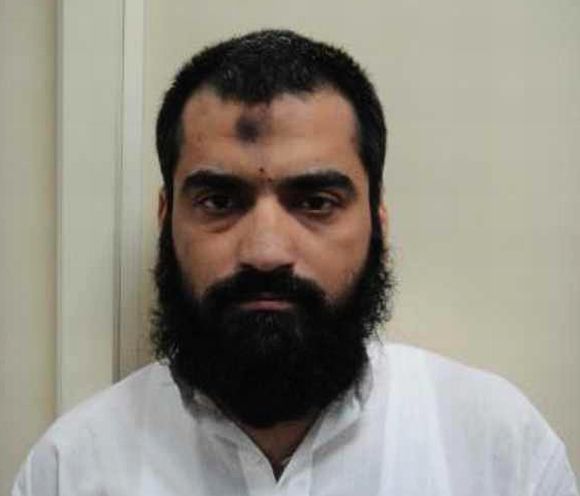 Indian officials say the recent disclosures in Pakistan go on to show the intensity of the programme prior to 26/11 terror attacks, reports Vicky Nanjappa.
Indian officials say the recent disclosures in Pakistan go on to show the intensity of the programme prior to 26/11 terror attacks, reports Vicky Nanjappa.
Although well known, it was still an interesting disclosure that was made by five inspectors of the criminal investigation department in Pakistan, that the 26/11 attackers were trained at various Lashkar-e-Tayiba camps in that country.
This is an interesting disclosure as it makes out two points -- Pakistan is no longer in denial about these camps, and second, it shows how widespread the Lashkar is within Pakistan.
The camps in question here are the ones at Karachi, Mansehra, Thatta and Muzaffarabad. The disclosures also make a point about the role played by arrested 26/11 handler Zaki-ur-Rehman Lakhvi in the attack.
Lakhvi is clearly the operations chief of the outfit as Pakistanis themselves point out that his expertise in using the improvised explosive device formed part of the training for the dastardly attack in Mumbai in which 166 people lost their lives.
Indian officials say this disclosure to the Pakistan court also goes on to show the intensity of the programme prior to 26/11.
The gunmen were trained at different camps for this operation. In addition, they also obtained maritime training at Gadap town near Karachi which Indian investigators had pointed out a week after the attacks.
These disclosures now need to be read with the revelations made by Abu Jundal and lone surviving gunman Ajmal Kasab to the Indian police.
Jundal told his investigators that there was a special unit of the Pakistan navy which imparted training to the 26/11 attackers in Karachi. He said the same camps which were used to train the 26/11 attackers were also used to train some operatives of the Indian Mujahideen.
"The Lashkar camps are divided into four and each of these camps impart a different level of training. The Lashkar has ensured that not too much time is spent in one camp as news could travel and the secret come out in the open," Jundal had said.
"All (terror) recruits first meet at Karachi. Depending on the nature of the job that they would want these recruits to undertake, they would be sent into various camps. For instance, there is a camp which trains IM operatives at Bhawalpur," he also said.
The 26/11 attackers were imparted training in various camps at Karachi, Mansehra, Thatta and Muzaffarabad. At Karachi, there was a safe house in which all the recruits were put up. Once they were told about the plan, they were moved to Muzaffarabad for arms training. Studying logistics, reading maps were also part of the training programme which took place in a camp at Mansehra. They were then brought back to Karachi where they were trained in maritime law.
"The Karachi camp is always used for a sensitive operation as they are under the eyes of some from the establishment. For instance the initial procedure commences at Karachi and in the case of the 26/11 attack, they were brought back there to train in maritime," Jundal also pointed out.
"The maritime training was done under the eyes of the Pakistan navy and hence they wanted the attackers to be in a more secure location so that no one gets wind of the same. The main camps which imparted training in maritime activity and use of arms lasted three months," Jundal said.
A similar statement was also made by Kasab during his interrogation.
"The attackers were however given breaks between these training programmes. They were allowed to go home and visit their families during this time. However, later this was stopped and they were asked to stay back in the camp as one of the recruits escaped as he was unable to handle the pressure," Jundal had said.
"All these training camps were primarily set up for the Lashkar so that they could impart training to persons fighting the Kashmir battle. This was very much an operation approved by (Pakistani spy agency) Inter Services Intelligence since Kashmir is a state policy issue for Pakistan. However, the same camps which were under the watchful eyes of the ISI, started imparting training to activities other than Kashmir," sources in the Indian Intelligence Bureau said.
"The ISI is aware of these camps and what goes on there," sources in the IB said, adding, "However they operate very smartly on these issues. Training at all these camps is not a continuous process as is mission specific."
"All the camps that the Lashkar used for the 26/11 attack were shut down after the operation. They were moved to different locations so that there was no evidence. It is only once the heat comes down do these camps open up once again. In the meantime, there are smaller camps of the Lashkar which impart regular training to newer recruits for smaller operations as well," IB officials added.
Image: Firefighters in action as gunbattle continues between terrorists and security personnel at Hotel Taj Mahal in Mumbai during 26/11 attacks
Photograph: Reuters










